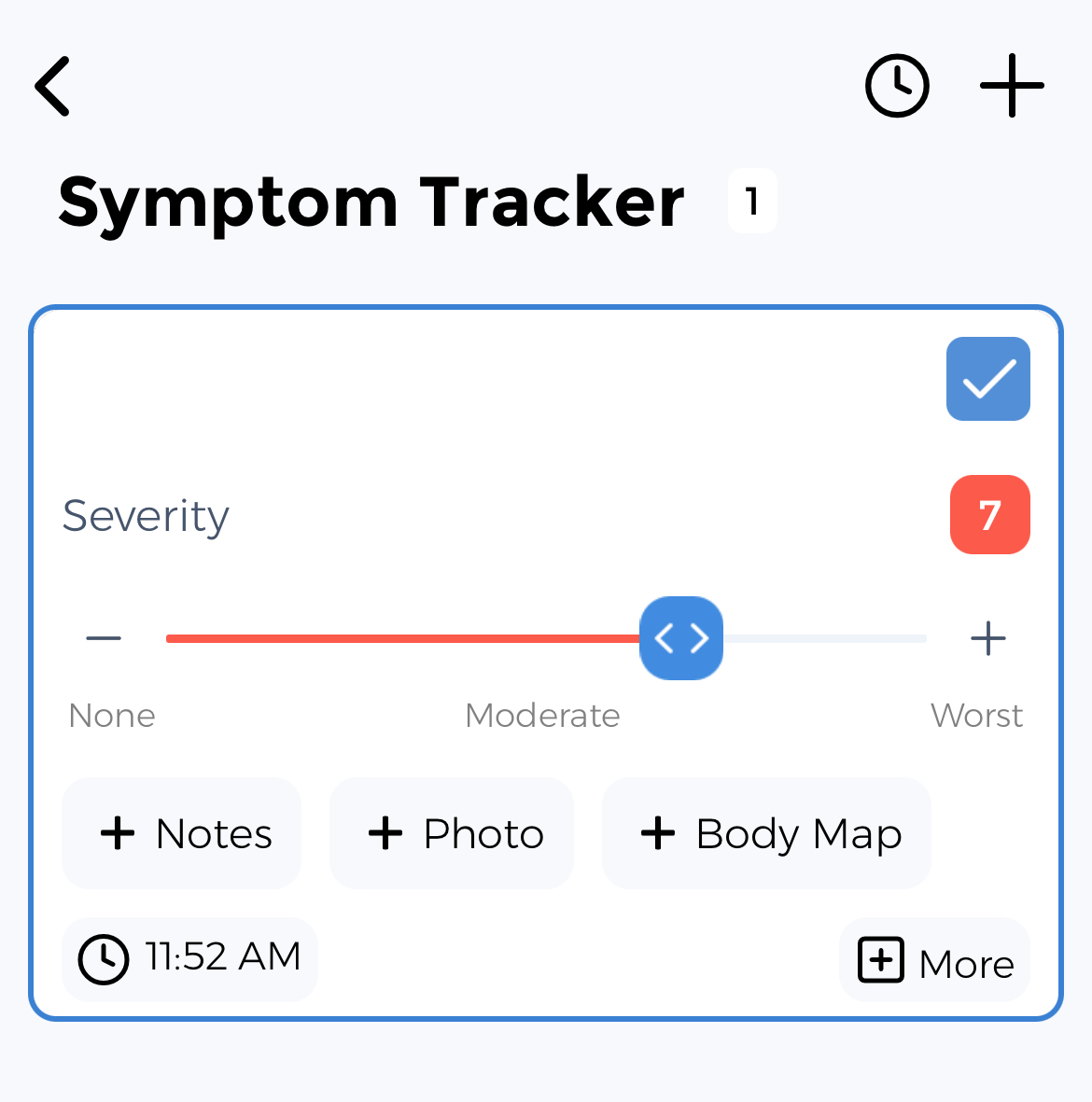Dental Caries Symptom Tracker: Your Health Assistant
Living with Dental Caries means dealing with tooth sensitivity, visible holes in teeth, white spots on teeth, and more. But here's the truth: Data is your most powerful tool. Every logged symptom reveals patterns—so you can take informed action.
Dental caries, commonly known as tooth decay or cavities, is a chronic, multifactorial disease characterized by the demineralization of tooth enamel caused by acids produced by bacteria. It ranges from early, reversible changes to extensive destruction requiring restoration or extraction. Tracking oral hygiene practices, dietary habits, and early symptoms helps prevent progression and maintain oral health.
Key Dental Caries Symptoms You Should Track
Struggling with symptoms like these? Tracking them reveals patterns, triggers, and how they impact your daily life.
Tooth sensitivity
Visible holes in teeth
White spots on teeth
Brown or black staining on teeth
Pain when eating sweet foods
Pain when eating hot or cold foods
Toothache
Pain when biting down
Bad breath
Unpleasant taste
Visible pits in teeth
Gum inflammation around affected tooth
Track Your Dental Caries Treatments
Tracking how these common treatments affect your symptoms can help you and your healthcare provider optimize your care plan:
Our tracker helps you monitor when you take medications and how they affect your symptoms over time.
Standardized Dental Caries Assessments
Complete these evidence-based assessments in the App to measure your severity and monitor your progress:
⚡ Knowledge Is Your Superpower
The difference between feeling overwhelmed by Dental Caries and feeling in control starts with data. When you track your symptoms, you transform uncertainty into clarity. Every data point brings you closer to understanding your unique patterns.
It's free to try for anyone—whether you're managing your own condition, supporting a child, helping an aging parent, or assisting a partner. Our tracker adapts to your specific role in the health journey.
How the CareClinic Dental Caries Symptom Tracker Adapts to Your Needs
Adults
Caregivers
Parents of Children
Young Adults
Your Complete Dental Caries Management Toolkit
Uncover Patterns & Insights
Map your Dental Caries symptoms like a detective solving a case.
Understand Your Medication's Impact
Turn guesswork into strategy. See how treatments affect your well-being with clear health insights.
Objectively Measure Your Progress
Use clinically validated tools to objectively measure your progress.
Other Tools You May Like...
Plus 4 more specialized tracking tools available
Access All Tracking ToolsAlso Supports Other Conditions Like
Dental Abscess Tracker
Dental Abscess warriors use our tracker to monitor severe toothache, pain when chewing.
Gingivitis Tracker
Gingivitis warriors use our tracker to monitor bleeding gums, red gums.
Dental Erosion Tracker
Dental Erosion warriors use our tracker to monitor tooth sensitivity, rounded teeth edges.
Dry Mouth Tracker
Dry Mouth warriors use our tracker to monitor mouth dryness, thick or stringy saliva.
Success Stories from Our Community
"Living with Dental Caries felt overwhelming until I started tracking systematically. I finally found what triggers made things worse after just 16 months of consistent logging."
"My doctor was impressed by the data I collected with this tracker. I learned my body has warning signs before major pain when eating hot or cold foods episodes, which led to a completely new treatment plan that actually works."
Take Control of Your Dental Caries Journey
Transform from feeling like a passive patient to becoming an informed self-advocate. Join thousands who've discovered new insights about their condition.
Designed by people who understand the daily challenges of managing chronic conditions, we're here to support you and your ❤️ ones.
Download Your Dental Caries Tracker NowYour Data is Protected
Private & Secure
HIPAA Compliant
GDPR Compliant
Never Sell Data
Your data is yours: You get full control over who can view your information. CareClinic keeps all your data secure and encrypted.
References based on studies by:

